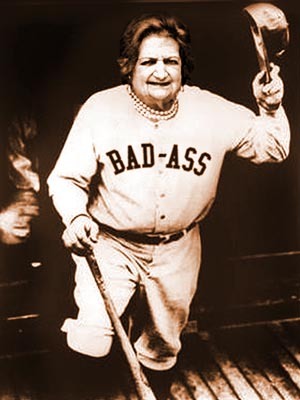
I love this woman. Love.
Do watch the video. I’m not sure what my favorite part is, but I do enjoy it when Dana Perino berates Helen Thomas for having the audacity to use her front-row seat in the briefing room to actually ask tough questions — especially since Perino follows it up with the statement that “to suggest that we, at the United States, are killing innocent people is just absurd and very offensive.”
I understand how suggesting that you’ve killed tens of thousands of people may be offensive and, in most cases, absurd. However, one thing I find more offensive than the suggestion that you’ve killed tens of thousands of people is actually killing tens of thousands of people. So perhaps Perino should can the indignation.
Whether you’re pro- or anti-war, it’s pretty difficult to argue with a straight face that we “at the United States” are not killing innocent people in Iraq. Perino even says so herself (sort of) when she laments, “To the extent that any innocent Iraqis have been killed, we have expressed regret for it.”
For now I’ll put aside the fact that that sentence makes little to no sense (“to the extend that any innocent Iraqis have been killed?” The fuck?) and simply emphasize that Dana Perino is both a bloody moron and an outstanding representation of the brain power in the White House. And Helen Thomas is my hero:
Helen Thomas: Do you know how many [Iraqi civilians] we have [killed] since the start of this war?
Dana Perino: How many… We are going after the enemy, Helen. To the extent that any innocent Iraqis have been killed, we have expressed regret for it.
Helen Thomas: Oh, regret. It doesn’t bring back a life.